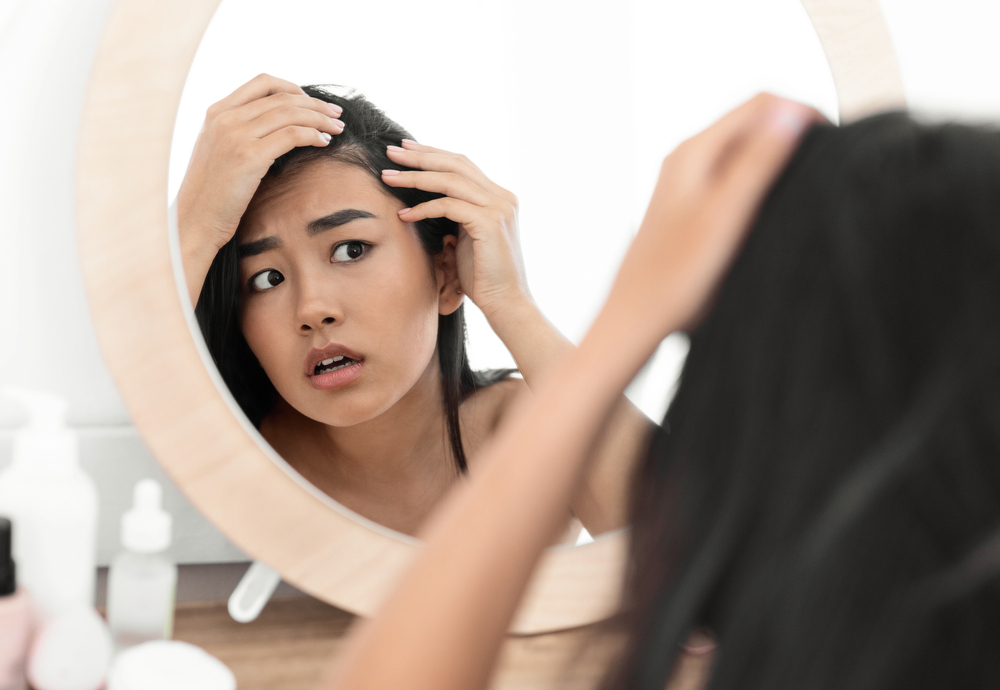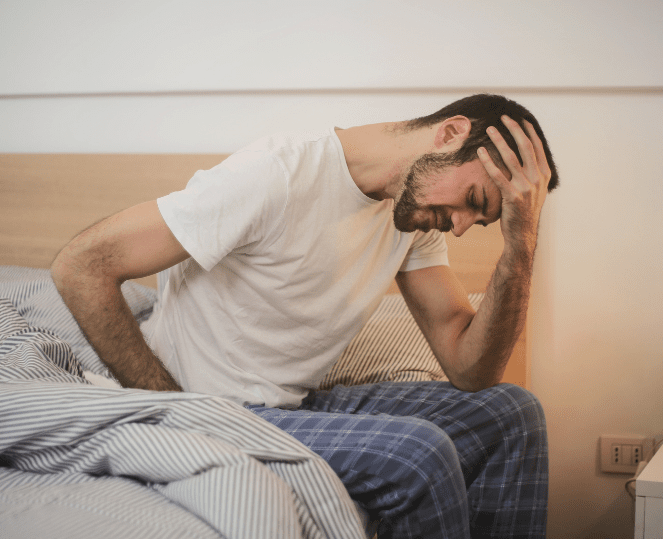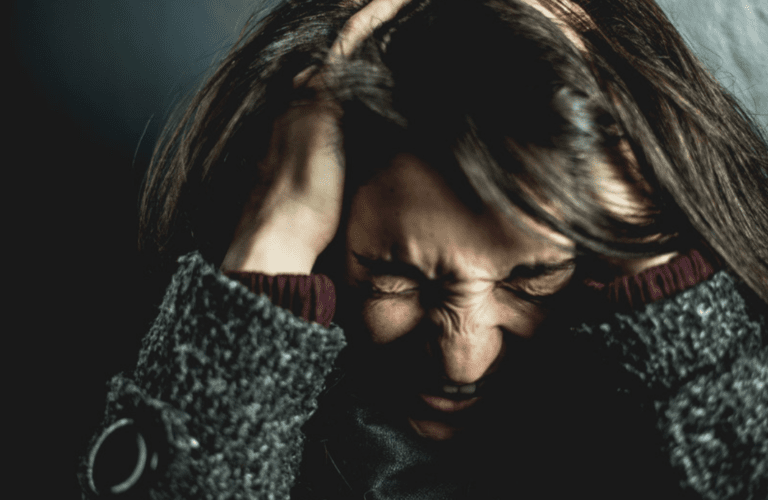Does Adderall Cause Hair Loss?
Many people ask the question: ‘does Adderall cause hair loss?’ Alopecia, or hair loss, is listed as a possible side effect of taking Adderall in the manufacturer’s medication guide. The manufacturers do not, however, provide any data on how frequently this side effect occurs, nor any recent studies that determined the proportion of people who suffered hair loss while taking the medication.
It is, therefore, difficult to determine whether or not Adderall indeed causes hair loss. It is also not known if the hair loss that can sometimes result from taking Adderall is permanent, with some people reporting that they experienced hair loss while taking Adderall, but that their hair regrew after stopping the use of the drug or switching to a different prescription
What is Adderall?
Adderall is a medication that is a combination of the stimulant drugs amphetamine and dextroamphetamine. Doctors prescribe it for the treatment of attention deficit hyperactivity disorder (ADHD) and narcolepsy, and they sometimes use it off-label for other conditions. Doctors usually recommend regular follow-ups for people who are taking Adderall for extended periods to ensure that the benefits continue to outweigh the risks.
Some people misuse Adderall for its stimulant effects and to enhance their study and examination performance. However, taking Adderall at high dosages and for prolonged periods can lead to dependence and serious side effects, including psychosis, cardiovascular events, and even sudden death.
Does Adderall Cause Hair Loss?
Adderall may lead to hair loss. In addition to damaging hair follicles, Adderall’s ingredients may disrupt hair growth cycles. However, additional research is needed in order to prove the link between Adderall and hair loss. In addition, Adderall may cause health problems and changes in behavior as a result of its effects.
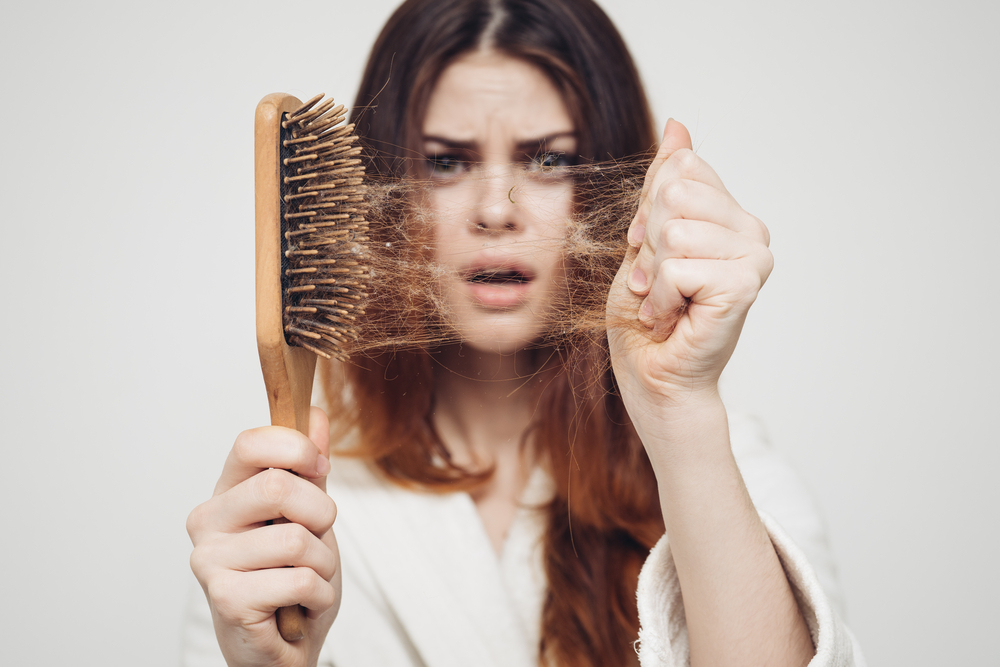
The hair-pulling disorder trichotillomania seen in one patient after he was treated with Adderall for ADHD is an example of this. The hair-pulling disorder stopped when he discontinued Adderall use. Hair loss can also occur as a result of these Adderall side effects:
- Trouble Sleeping – As a stimulant, Adderall may impede sleep. Restlessness, insomnia, and the inability to fall and stay asleep may cause hair loss.
- Stress – Cortisol is required for the flight-or-fight response and for stress. When cortisol levels are elevated in the blood, hair follicles can be harmed, causing hair loss.
- Loss of Appetite – When your appetite is lost, you may develop a nutritional deficiency, causing hair loss.
Side Effects of Adderall
Besides hair loss, Adderall may cause other side effects including:
- Dry mouth
- Constipation
- Irritability
- Stomach pain
- Headache
- Nausea
- Weight loss
- Aggression
- Mood changes
- Insomnia
Symptoms of Adderall Misuse
Adderall is classified in the United States as a Schedule II prescription drug, meaning it has a high potential for abuse and dependency. The following are symptoms of Adderall misuse:
- Chest pain
- Shortness of breath
- Dizziness
- Slowed speech
- Increased heart rate
- Limb numbness
- Lack of coordination
- Depression
- Teeth grinding
- Paranoia
- Fever
- Confusion
- Extreme agitation
- Anxiety
- Blurred vision
- Aggressive behavior
- Poor blood circulation
- Mania
- Hallucinations
- Seizures
- Psychosis
- Heart Attack
- Death
Treatment for Hair Loss
In comparison to the severe symptoms listed above, hair loss while taking Adderall is a minor setback. If you experience hair loss while taking Adderall, please consult your doctor. Other stimulants may also trigger loss of hair as a side effect, so lowering the dose or switching to another treatment might be an option.
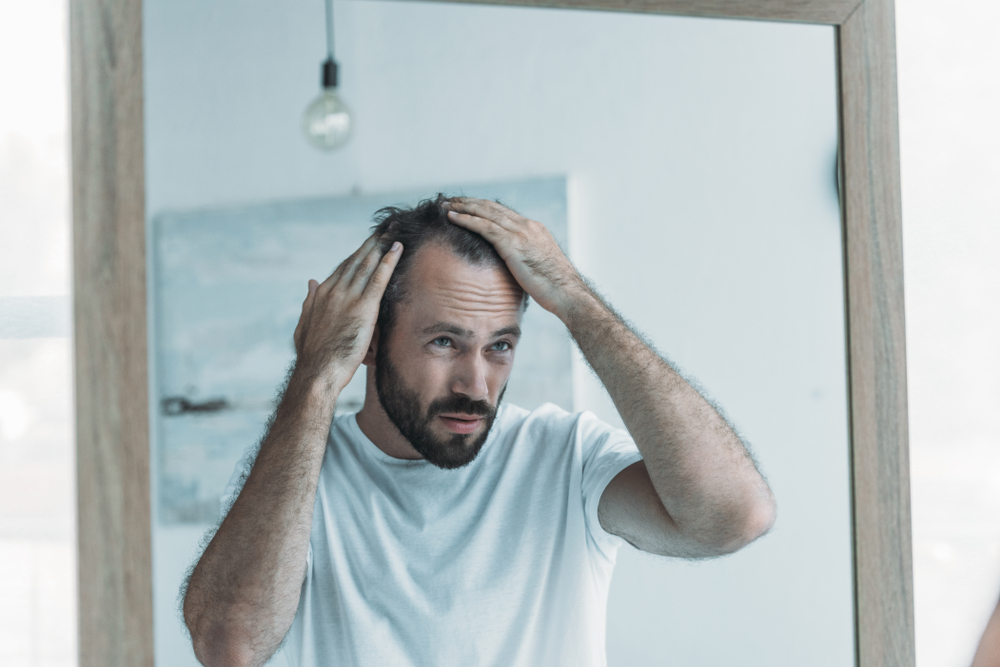
You should also seek medical advice before stopping the drug. The sudden discontinuation of Adderall or other stimulant drugs may result in withdrawal symptoms, and your physician can create a tapering schedule so you can go off Adderall without experiencing unpleasant withdrawal symptoms.
Strategies for managing hair loss while taking Adderall may include the following:
- Manage Anxiety – Using anti-anxiety medications, behavioral therapy, regular exercise, support groups, and relaxation therapies, such as meditation and yoga, might help prevent or reduce compulsive hair pulling, a symptom of anxiety.
- Take Care of your Hair – Good hair care is critical for avoiding hair loss as it can reduce hair damage and breakage. A doctor or knowledgeable hairstylist may be able to recommend an appropriate hair care routine.
- Make Sure you aren’t Nutrient-Deficient – There are many nutritional deficiencies that a doctor can identify and treat. In addition to dietary changes, doctors can also recommend lifestyle changes to improve health.
- Take a Daily Multivitamin – Certain nutritional deficiencies can be treated or prevented with a multivitamin supplement. A doctor or dietician may provide dietary suggestions.
- Consult with your Physician – Doctors can identify the cause of hair loss and provide the appropriate treatment recommendations in this situation whether or not Adderall use is to blame.
Alternatives to Adderall
Adderall use is widespread among students, exhausted mothers, and many executives as well as a way to increase concentration and performance. Amphetamines like Adderall can be quite addictive when administered improperly. Here are several methods for getting focused and energized without drugs and without the fear of hair loss.
- Eat Protein – Certain neurotransmitters in the brain are made from amino acids found in protein. Foods high in amino acids contain all the essential amino acids to keep your neurotransmitters functioning optimally. This includes fish, beef, poultry, eggs, yogurt, and cheese.
- Improve Digestion – 80% of the neurotransmitters we discussed are produced in your gut. If you are eating protein but are unable to digest it, you will not receive any advantages. Optimize your digestion and you’ll increase the amounts of these important hormones.
- Manage Stress – Daily stress management is critical to maintaining bodily equilibrium. You don’t have to spend three hours meditating daily. Block out ten to fifteen minutes each day. Choose something you enjoy but do not strain your body: reading, drawing, painting, juggling, playing an instrument, Tai chi, Qigong, light yoga/stretching, or walking in a park are all excellent examples. Avoid email, cell phones, and other electronics.
- Improve Adrenal Functioning – Adrenal insufficiency may lead to cognitive impairment, especially in the early stages, according to the Cleveland Clinic. If you find that you’ve lost your ability to recollect specific details or that you can’t concentrate for any length of time (and short periods), your adrenals might be low on hormones. The first step in boosting adrenal hormones is getting enough sleep. To ensure adrenal health, you should eat a healthy diet and cut down on alcohol consumption.
- Drink Coffee – Coffee is great for keeping you focused and alert. The type of coffee you drink and the ingredients you include are important for getting the desired effect without the nasty crash. Try to opt for organic coffee and add butter, coconut oil, or heavy cream. The fat binds to the caffeine and makes your coffee a time-released beverage.

- Eat Cacao – Cacao is extremely stimulating to the brain and can help foster creativity and concentration. It is best consumed away from bedtime and in small amounts as excess consumption can be counter-productive.
- Consume Fish Oil and Fats – An abundance of high-quality fats from plant and animal sources, including nuts, seeds, avocado, coconut oil, grass-fed butter, ghee, and olive oil, has been proven to have a significant impact on the brain. Eating a lot of healthy fats can help treat a variety of mental conditions.
Trust Oasis Recovery
There is help available for you or a loved one struggling with Adderall misuse. Please contact Oasis Recovery for details on our individualized treatment programs
Oasis Recovery was founded on the realization that addiction and recovery are two separate things, and our aim is to provide a place where individuals can heal from addiction by receiving compassionate, imaginative, open-minded, and heart-centered care. We know that recovery is always possible and we work with you to create a treatment plan that suits your needs. Our treatment options include:
- Intensive Outpatient Program
- Partial Hospitalization Program
- Aftercare Planning
- Detox Refferals
- Mental Health Referrals
Contact us today for more information about how our treatment programs and services can help you get your life back on track. You do not have to struggle on your own. We are here to help.



